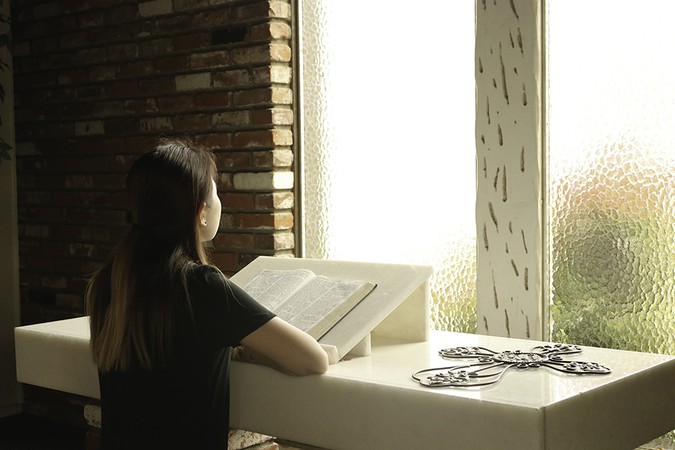With Women’s History Month posts circling and days set aside specifically for women empowerment, many reactions are beautiful to behold: men thanking their wives, uncles texting their nieces, sisters hugging sisters. But when these days of women empowerment meet the evangelical eyeroll, a question arises: with all this breaking of the glass ceiling and marching for the utilization of the women’s vote, where does the church come in?
The church believes in women. Some only, however, to the extent of a role in children’s ministry or of what volunteer bake sales can offer.
Relevant Magazine recently published an article by Emma Jarred entitled “Equality for Women Should Start in the Church” in which she asks questions such as:
Where is the church in this moving forward and encouragement of women? What is the point if the church—in its majority—continues to ignore the woman as a possible contestant for pastoral roles?
She breaks the century long argument down to one simple thought: the definition of submission is what divides the egalitarian from the complementarian.
“WEAKER VESSEL” OR “STRONG HELPER”
Jarred stated:
“Paul says ‘Believers, submit to one another in love.’ Clearly Paul understood submission to be something mutual that two people can do to each other.”
This is the heart of the issue. In the nitpicky, who should do what, who should do the laundry more, we still have not reached the heart of the issue.
Paul asks women to volunteer to submit to their husband—culturally this was radical. How strong a woman must be to bow her head when she knows exactly what needs to be done. This message of submission is in and of itself one of power.
Freedom for evangelical women in Jesus’ name
The issue is this: why is the woman deemed less than? Why are we still keeping and applying societal and structural values that were imposed upon women in Jerusalem in local churches? To those who say women deserve equal rights, yet limit them to the secular world, I ask a question: why is freedom something you desire to keep from the women around you? Further, why is it something you think you have the power to control?
Inpredictability of emotions is often the argument that most often disqualifies women from jobs and positions unopposed by men. These answers remain futile. I would hope that decades of attributing a woman’s pain, weakness and helplessness to their time of the month are gone.
If these, paired with a couple of verses taken out of context resonate as the soundness of an argument, the “battle” is lost. Arguments of biblical integrity negate and often override God’s intentional use of women throughout biblical history, often in breaking tradition in their position of leadership over men, and without men as benefactor—Deborah, Rahab, Naomi, Ruth, Esther, Hagar, the Virgin Mary and Mary Magdalene.
These women fought, led men and served often in place of and in spite of the faithlessness and fear of their male counterparts.
CALLING ALL WOMEN
There was intentional calling upon their lives. There comes a point when the church needs to step out of the way of women and realize: we are being raised up—headstrong, passionate, convicted and Spirit-led.
Whether or not one follows their husband to the 10-40 window becomes a bit of a challenging question when you are already there, serving as you have been called. Then who decides?
This is not an argument about where the woman should be—in the workplace or the house. This is a rectification of the effects of patriarchal sin upon our culture: the child is not owned by the father, neither is the slave by the owner, neither is the woman by her husband.







